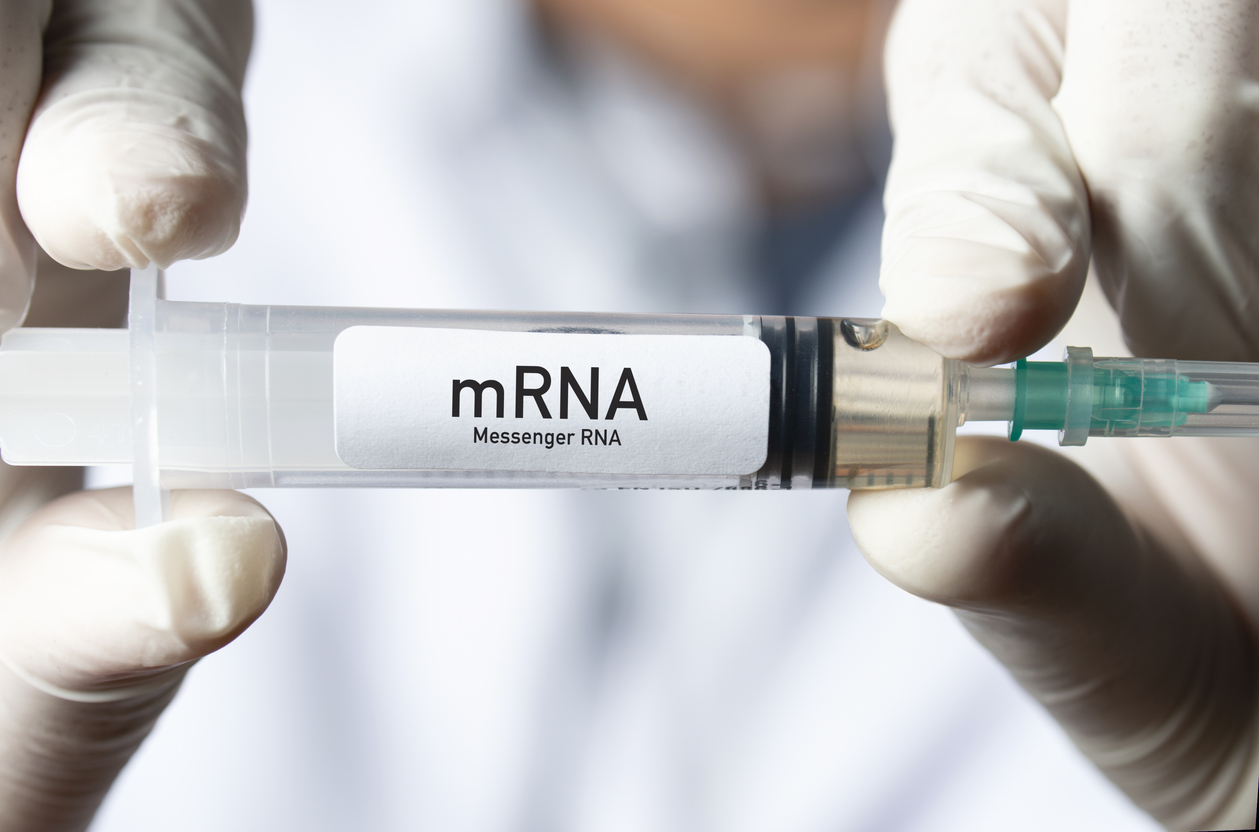Recent cancellation of funding for mRNA research, based largely on debunked social media–perpetuated misinformation, is causing severe disruption to the development of cancer vaccines and to our ability to respond to terrifying infectious diseases like Zika and future pandemics. That’s why it’s important to break down the most common myths and realities about mRNA technology, especially as it relates to vaccines like the COVID-19 vaccines.
Myth 1: mRNA vaccines alter your DNA
Reality: mRNA does not enter the cell nucleus where DNA is located, and it cannot alter your genetic code. It simply provides instructions to make a protein and then degrades naturally.
Myth 2: mRNA vaccines are new and untested
Reality: While COVID-19 brought mRNA into the spotlight, the technology has actually been in development since the 1990s. It has been extensively researched for cancer treatment, infectious diseases, and more.
Myth 3: mRNA stays in your body permanently
Reality: mRNA is fragile and breaks down within hours to a few days after injection. It does not remain in the body long-term.
Myth 4: mRNA vaccines contain live virus
Reality: mRNA vaccines do not contain any part of a live virus. They simply teach your body to recognize and respond to a viral protein (for example, the COVID-19 spike protein).
Myth 5: mRNA vaccines cause infertility
Reality: There is no scientific evidence linking mRNA vaccines to infertility. This myth originated from a misinterpretation of protein similarities and has been thoroughly debunked by studies.
Myth 6: Natural immunity is better than vaccine-induced immunity
Reality: While natural infection can produce immunity, it comes with significant risks. mRNA vaccines offer safer, controlled immunity without risking severe illness or complications.
Myth 7: mRNA technology is only for COVID-19
Reality: mRNA technology is being researched for a wide range of diseases, including cancer, influenza, Zika, rabies, and more. COVID-19 vaccines were simply the first widespread application—not the last.
Myth 8: mRNA vaccines cause widespread severe side effects
Reality: Most side effects are mild and temporary, such as fever or fatigue. Serious side effects are rare, and health authorities continue to closely monitor vaccine safety.
Myth 9: mRNA can be transmitted or shed to others
Reality: mRNA is not contagious and cannot be shed. There is no biological mechanism for the mRNA or the proteins it produces to transfer from one person to another.
Myth 10: mRNA vaccines are experimental
Reality: mRNA vaccines have gone through rigorous clinical trials, passed safety standards, and are fully approved—such as the Pfizer and Moderna COVID-19 vaccines.
mRNA technology represents a major leap forward, not only in how we fight pandemics but also in how we approach cancer treatment and other devastating diseases. By separating fact from fiction, we can preserve momentum in scientific innovation and ensure that future generations benefit from safer, faster, and more effective medical breakthroughs.
Key Takeaways About mRNA Vaccines
- mRNA does not alter DNA or stay in the body permanently.
- mRNA vaccines have been researched since the 1990s, not just during COVID-19.
- They do not contain live viruses and cannot be transmitted or shed.
- Myths about infertility, severe side effects, or experimental status have been scientifically debunked.
- mRNA research extends beyond COVID-19 to cancer, influenza, Zika, rabies, and more.
- Protecting funding for this technology is critical for future vaccines and medical breakthroughs.
Lifescape and Vaccines
At Lifescape, we believe in empowering patients with science-based information and a proactive approach to care. If you want a trusted medical partner who stays on top of the latest innovations and helps you separate fact from fiction in your health journey, schedule a Meet & Greet with our concierge medicine Scottsdale facility today.

